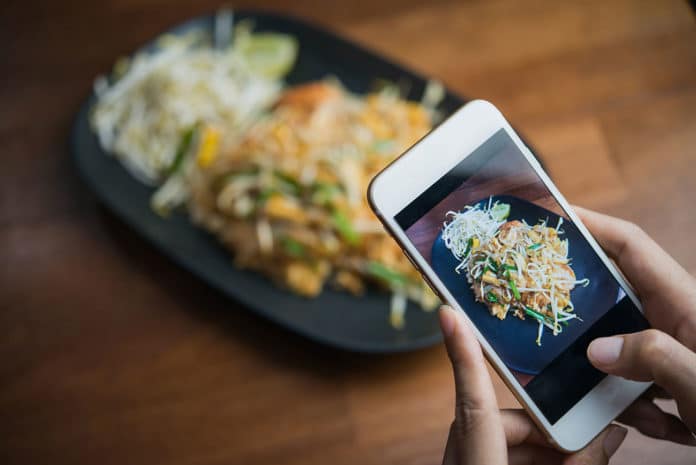No doubt, social media has a dramatic impact on the way we experience the world around us. Similarly, social media has fundamentally changed the way that many companies communicate with and market to their target demographics.
For the travel and hospitality sector, in particular, the rise of the Internet and the increased popularity of social channels have altered travel marketing. A new study, shedding light on the impact of social media, suggests that social media can also influence our consumer behavior and to nudge us in the direction of increasingly sustainable choices.
During the study, scientists analyzed the role of social media in the reduction of food waste in tourism. According to scientists, this line of research is a fresh opening and a much-needed one, considering that food waste has been identified as the most prominent type of hospitality waste.
Research Manager Juho Pesonen from the University of Eastern Finland said, “Social media is a powerful tool, and it defines many of our social norms. Things that are trending on social media influence the way we behave as consumers.”
Sweden made the headlines this year after a fall in the nation’s air traveler numbers. Pesonen reported, “We additionally saw online life crusades uncovering big names who, regardless of environmental change, had the nerve and dauntlessness to go via air. Flight disgrace as a wonder and as a term was conceived. As per Pesonen, something comparative could likewise develop around nourishment squander.”
“Food plays a tremendous role in social media. It is no longer something that people eat to ease their hunger; instead, it has become part of their lifestyle. Instagram, for example, is filled with hashtags relating to foodporn. When a topic gains much visibility, it is also possible to influence attitudes relating to it.”
“In other words, there could be a shift from overwhelming abundance and plentiful buffets towards a more conscious attitude and sustainability.”
“We need more research to understand different mechanisms of influence and different influencer roles on social media.”
According to the estimates, more food reaches landfills and incinerators than any other single material in our everyday trash, constituting 22 percent of discarded municipal solid waste. Fighting with food waste is in the interest of companies. For that purpose, they save money and gain a competitive edge that is valued by their customers.
Companies can build their entire business around reducing food waste, which is something the zero-waste restaurant Nolla in Helsinki has done in an exemplary fashion.
According to Pesonen, research suggests that at the point when we are on vacation, our attitudes tend to remain unchanged, yet this doesn’t convert into our conduct.
Pesonen said, “It may well be that compared to traditional hotels and restaurants, these other tourist households are effective in reducing their food waste, but very little research into the matter exists.”
“Responsibility and sustainability have long been significant trends in tourism. Consumers are keen to know whether restaurants use local ingredients and whether services are locally produced.”
“This is also a cycle that feeds itself. The brand of tourism is increasingly green and responsible, which makes people less worried about sustainability. This, in turn, could lead to the growth of tourism.”
